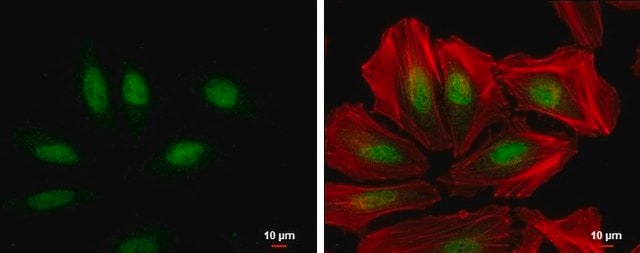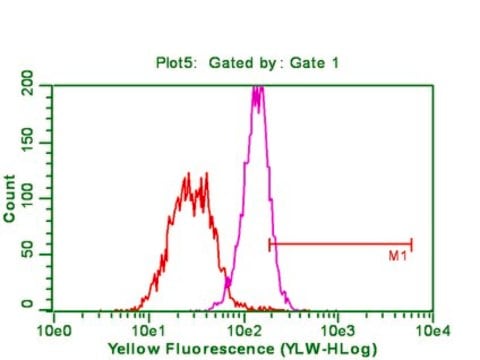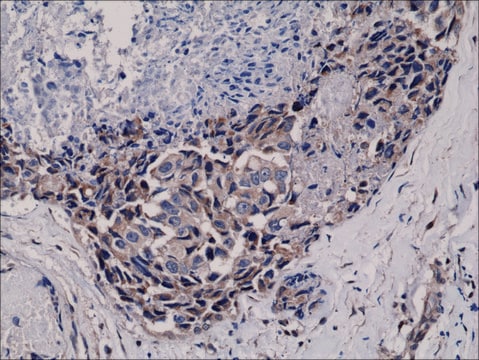05-669
Anti-phospho-Akt1/PKBα (Ser473) Antibody, clone 11E6
clone 11E6, Upstate®, from mouse
Sinónimos:
Protein kinase B, RAC-alpha serine/threonine-protein kinase, murine thymoma viral (v-akt) oncogene homolog-1, rac protein kinase alpha, v-akt murine thymoma viral oncogene homolog 1
About This Item
Productos recomendados
biological source
mouse
Quality Level
antibody form
purified antibody
antibody product type
primary antibodies
clone
11E6, monoclonal
species reactivity
rat, canine, mouse, human
manufacturer/tradename
Upstate®
technique(s)
ELISA: suitable
western blot: suitable
isotype
IgG1κ
NCBI accession no.
UniProt accession no.
shipped in
dry ice
target post-translational modification
phosphorylation (pSer473)
Gene Information
dog ... Akt1(490878)
human ... AKT1(207)
General description
Specificity
Application
A previous lot was recommended at 0.05 mg/mL by an independent laboratory for ELISA.
Quality
Western Blot Analysis: 0.5-2 µg/mL of this antibody detected phosphorylated Akt1/PKBa in lysates from mouse NIH-3T3 fibroblasts treated with 100 ng/mL PDGF for 20 minutes.
Target description
Physical form
Reconstitute with 1 mL H2O (15 min. at RT). Concentration after reconstitution: 100 µg/mL
Storage and Stability
Reconstitute prior to use. Reconstitute with 1 mL H2O for 15 min at room temperature. Reconstituted aliquots should be stored frozen at -80°C. Thawed aliquots may be stored at 2-8°C for up to 3 months. Avoid repeated freeze/thaw cycles, which may damage IgG and affect product performance.
Analysis Note
PDGF treated NIH-3T3 cell lysates.
Other Notes
Legal Information
¿No encuentra el producto adecuado?
Pruebe nuestro Herramienta de selección de productos.
Optional
signalword
Danger
hcodes
Hazard Classifications
Acute Tox. 3 Dermal - Acute Tox. 4 Inhalation - Acute Tox. 4 Oral - Aquatic Chronic 3
Storage Class
6.1C - Combustible acute toxic Cat.3 / toxic compounds or compounds which causing chronic effects
wgk_germany
WGK 1
Certificados de análisis (COA)
Busque Certificados de análisis (COA) introduciendo el número de lote del producto. Los números de lote se encuentran en la etiqueta del producto después de las palabras «Lot» o «Batch»
¿Ya tiene este producto?
Encuentre la documentación para los productos que ha comprado recientemente en la Biblioteca de documentos.
Nuestro equipo de científicos tiene experiencia en todas las áreas de investigación: Ciencias de la vida, Ciencia de los materiales, Síntesis química, Cromatografía, Analítica y muchas otras.
Póngase en contacto con el Servicio técnico









